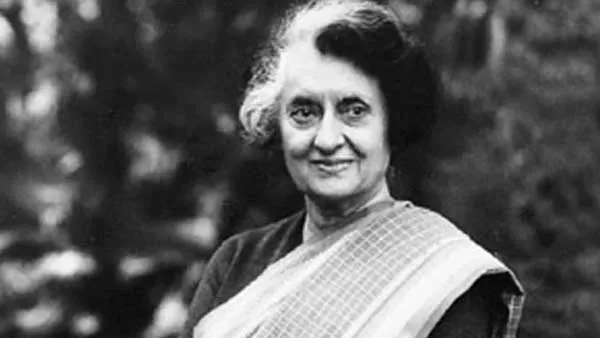1975 is perhaps the most controversial period of democratic Indian history. The period marks the suspension of elections, restrictions of liberties and censorship of the press.
President Fakhruddin Ahmed declared a state of emergency upon the advice of Prime Minister Indira Gandhi on the night of 25th June 1975. This state of emergency lasted from 1975-1977 under Article 352 of the Constitution because of the ongoing internal disturbance.
Imposition of Emergency
President Fakhruddin Ahmed proclaimed an emergency that lasted for almost 21 months. The unfavourable situation emanated the suspension of the elections and restricted liberties. As a result of which, the Government arrested the political opponents of Indira Gandhi and imposed media censorship. The period also witnessed Human Rights violations and is therefore perhaps the most controversial period of Indian history.
Factors Leading Towards Emergency
War, Refugees, Economy and Political ghost – All led Indira Gandhi towards a decision, which later on became a historical event of Indian political history.
Subsequent to the 1971’s war, the Indian economy was in dire straits, following the high influx of refugees. The US Government also stopped the aids to India which ultimately led to distress in public and an increase in commodity prices. Moreover, the slowdown in industrial growth, a high rate of unemployment and the government’s move to freeze the salaries of its employees caused an environment of public dissatisfaction. Similarly, adding to the already deteriorating political landscape the delay in monsoon during 1972-73 also affected the food grain output, resulting in the unrest of the general populace.
In January 1974, the students in Gujarat started protesting regarding the surge in food prices, basic necessities and corruption in the government.
This protest soon garnered the support of the opposition parties which led to the imposition of the President’s rule in the state. They also began to demand fresh elections.
Similarly, in 1974 the students in Bihar started protests against the government on the same issues and invited Jayaprakash Narayan, a civil society leader who was engaged in social work and had given up from politics. On 25th June, Narayan led a huge rally in Delhi where he demanded Indira Gandhi’s resignation. Consequently, in June 1975, elections took place in Gujarat, which Congress eventually lost.
Petition Against Indira Gandhi
Another ghost from the past started haunting Indra Gandhi. It was from the elections of 1971. Indira Gandhi defeated Raj Narain from the Janata Party during the 1971’s Parliamentary elections. Subsequently, Raj Narain filed a petition in Allahabad High Court against Indira Gandhi; for fraud in elections and the misuse of state machinery.
On June 12, 1975, the High Court found Indira Gandhi guilty of misusing the state’s machinery and declared the elections as void. Moreover, she was also disqualified as a Member of Parliament (MP) and barred from the election for six years.
Indira then moved towards Supreme Court against the High Court’s verdict. On 24th June 1975, Supreme Court allowed her to remain the Prime Minister but debarred her from voting as an MP until the final verdict came.
Declaration of Emergency
This all culminated into desperate steps. Indira Gandhi, the iron lady of India, went for an authoritarian step – A declaration of emergency through the president of India.
The protests and demonstrations started against Indira Gandhi across the country. President Fakhruddin Ahmed then declared a state of emergency on June 25th 1975. All the opposition leaders including Jayaprakash Narayan, Atal Bihari Vajpayee, LK Advani and Morarji Desai were arrested. Alongside this, Fakhruddin placed censorship on media and ordered the arrest of multiple senior journalists. In the process, Rashtriya Swayamsevak Sangh (RSS) and Jamaat e Islami were also banned by the government.
Furthermore, in the background of the Allahabad court verdict, a Constitutional amendment was made. The changes announced that the election of the President, Prime Minister and Vice President could not be challenged in the court. Hence, the verdict is the reflection of authoritarian rule under the garb of democracy.
Congress Faces Defeat
In January 1977, the Indian Government decided to hold an election 1977. The opposition became united under the flag of the Janata Party under the leadership of JP Narayan. The elections marked the defeat of Congress in the Lok Sabha elections. It could only manage to win 154 seats in Lok Sabha, while Janata Party got 295 seats. Resultantly, Rae Bareli defeated Indira Gandhi in the elections. This marked the end of the era of one of the most cherished leaders of India.
Also See: 24th April 1929 – The First Non-Stop Flight to British India





![Ukrainian and Russian flags with soldier silhouettes representing ongoing conflict. [Image via Atlantic Council].](https://southasiatimes.org/wp-content/uploads/2026/02/2022-02-09T000000Z_1319661209_MT1NURPHO000HXCNME_RTRMADP_3_UKRAINE-CONFLICT-STOCK-PICTURES-scaled-e1661353077377.jpg)

